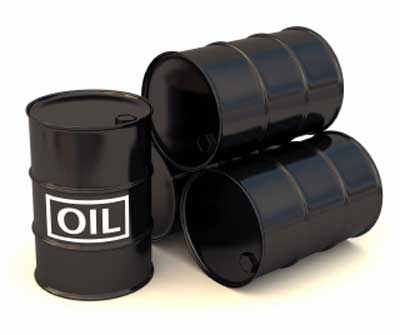by Henry Sanderson* Volatility hit the commodities markets on Monday as crude prices rebounded after hitting a new five-year low while copper slid to a four-year low, following last week’s sell-off triggered by Opec’s decision to maintain production levels.
by Henry Sanderson*
Volatility hit the commodities markets on Monday as crude prices rebounded after hitting a new five-year low while copper slid to a four-year low, following last week’s sell-off triggered by Opec’s decision to maintain production levels.
The Bloomberg Commodity Index of 22 raw materials fell to its lowest since May 2009.
Crude, which had plunged after the cartel’s meeting on Thursday, fell further, with ICE January Brent as low as $67.53 a barrel – the cheapest it has been since October 2009 – before rebounding to $71, up 86 cents.
Copper slid almost 2 per cent to a four-year low before rising 1.2 per cent to $6,424 a tonne, while precious metals rose after Switzerland rejected a referendum to increase its holdings of gold and a measure of manufacturing activity in China showed further weakness. Corn eased, with CBOT March corn down 0.8 per cent to $3.85½ a bushel.
The weakening of the oil price has led to concerns of a broader sell-off in commodities as investors pull money out of sector funds.
Oil-producing nations that gathered last week in Vienna decided not to cut production despite weaker demand and a surplus of oil. Brent has dropped more than 40 per cent since mid-June to below $70 a barrel.
JBC Energy, an oil consultancy, said the market was trying "to find a new price floor now that Opec has pulled the rug from under [its] feet”.
While cheaper oil is set to benefit importing countries, its price drop comes amid signs of a deepening slowdown in China, the world’s biggest oil consumer, and stagnant growth in the eurozone.
"To us this fall in prices seems demand rather than supply led, and so any benefit will be negated by the declining world growth outlook,” said Rabobank in a report.
On Monday China’s official Purchasing Managers’ Index, a gauge of manufacturing activity, fell to 50.3 in November, the lowest for eight months. The People’s Bank of China cut interest rates last month for the first time in two years.
In industrial metals, copper has been hit the hardest, losing about 13 per cent so far this year.
While the price had been supported by alleged purchases by China’s State Reserve Bureau, Goldman Sachs said, that might not be repeated next year if copper looked like the "other shoe to drop” amid a commodities market rout.
Gold initially fell after 77 per cent of the vote in Switzerland on Sunday was against the proposal for the central bank to hold at least 20 per cent of its assets in the precious metal.
While analysts had not expected the referendum to pass, gold fell to touch $1,140 in trading, its lowest level since November 7.
"With such an overwhelmingly large vote against adding gold to holdings it’s unlikely that anything like that will come again in the foreseeable future,” said Stephen Briggs, a metal strategist at BNP Paribas. "It was one of the last hopes of some of the bullish commentators that’s now been kicked away.”
UBS said the result was
likely to encourage those who were short gold to extend their positions. A
weaker oil price hurt gold because it could lead to stronger global economic
growth, the bank said.
*"Financial Times”, December 1, 2014




